Drug addiction is among the most widespread diseases. It affects adults of all ages and slowly disrupts their lives. Many people aren’t even aware of being addicted – they justify addictive behavior with problems and circumstances. However, the true danger of this disease is revealed when it starts affecting all spheres of life: family, health, work, finances, and so on.
Despite all efforts, families cannot make dependent people get through a serious addiction – this health problem should be addressed by professionals only. That’s exactly what specialists in rehab centers do. They provide a comprehensive set of services for addicted people: counseling, psychological help, community support and so on.
Following the drug rehab program makes it possible to complete the detoxification recovery process in a friendly, caring, and safe environment. In or list, you will find 20 rehab centers with a variety of recovery plans for teens, adolescents, and adults.
1. Parkside Psychiatric Hospital & Clinic
This rehab focuses on emotional well-being treatment and is situated in Tulsa. It offers individualized treatment plans for clients battling with chemical drug and prescribed medication addiction. It offers both inpatient and outpatient treatment modes. Their approach is based on a 12-step program, so duration of recovery is not fixed. Much attention is paid to psychological issues and dual diagnosis – the staff assists patients with conquering internal conflicts and developing coping skills.
Address: 1239 S Trenton Ave, Tulsa, OK 74120
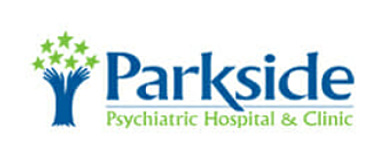
More Information on ParksideInc.org
The rundown of services in Parkside Psychiatric Hospital incorporates:
- Clinical Detox;
- Singular, Group and Family Therapies;
- Coping skills classes;
- Relapse prevention;
- Case Management and Discharge Planning;
- Expressive therapy (craftsmanship, music);
- Yoga, mindfulness, meditation.
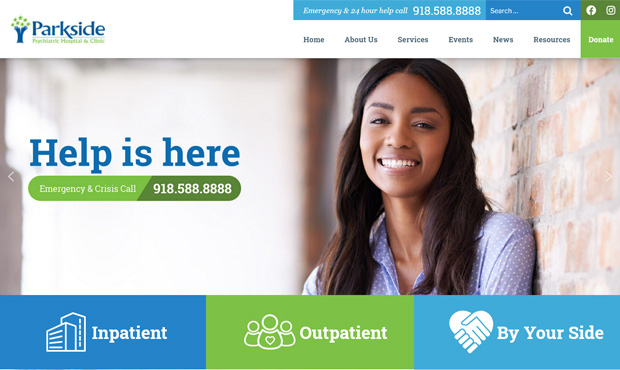
All things considered, Parkside provides the entire extent of services for substance abuse treatment, so it’s a decent alternative for individuals looking for high quality of services combined with moderate costs. Some customer reviews are bad because of people having problems with their insurance – make sure you have a plan and verify it.
2. H.O.W. Foundation
The rehab runs an in-house private recovery program that lasts at least 6 months. It’s designed for adult men struggling with addiction. The program is based on 12-step approach and incorporates AA and NA gatherings. It’s not costly but rather demanding – patients should work hard on their self-improvement and stay responsible for their activities and attitudes.
Address: 5649 S Garnett Rd, Tulsa, OK 74146
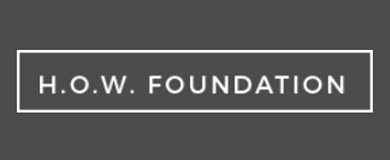
More Information on HOWFDN.org
The program by H.O.W Foundation relies on a few important constituents:
- Work. Occupants are involved in house maintenance. They clean, do repair works, help in volunteer associations, etc. It assists them with creating self-control and helps to sustain the organization, so it doesn’t need to bother about monetary help.
- Learning. Residents visit 12-step classes to slowly gain power over cravings and dispose of addiction in a smooth, tranquil way. Additionally, prayer, reflection and meditation classes are likewise present.
- Inhabitants figure out how to appreciate sober lives, discover hobbies and vocation, figure out how to build trustful relationships and find out how to become happy without substances.
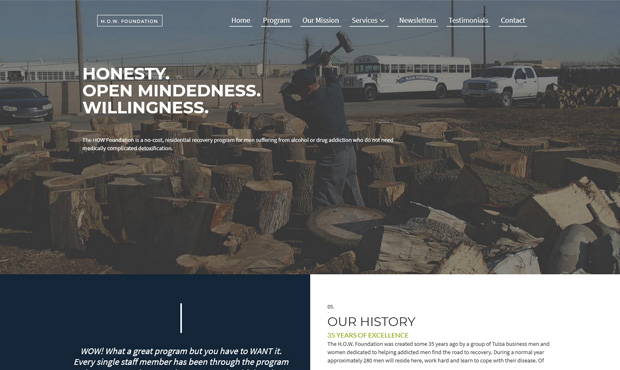
All things considered, this rehab is suggested for men who don’t have a large budget but want to get quality services and stay engaged in a healthy, supportive community.
3. Green Country Adult & Teen Challenge
Having been around for over 60 years, this rehab offers special programs for men, women, boys and girls. Their faith-based programs incorporate all essential activities for patients to address physical, psychological, mental and spiritual problems. According to the statistics, over 78% of their graduates remain sober. The team puts focus on co-occurring disorders (depression, anxiety, anger, etc), which lays the foundation for a happy life.
Address: 4561 # 8, 4835 S Peoria Ave, Tulsa, OK 74105
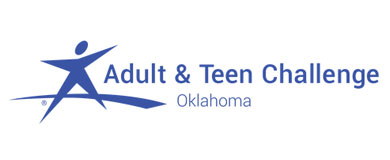
More Information on OKTeenChallenge.com
The residential program lasts 12-18 months on average. It includes:
- Individual and group meetings;
- Personal mentoring;
- Biblically-based curriculum;
- Ethic training;
- Coping skills;
- Relation-building skills;
- Dual diagnosis and treatment of co-occurring disorders.
The residential facilities are moderate but feature all essential amenities for sober living. Since Green County is a non-profit organization, most treatment services are provided for free. However, residents are expected to help with house chores and perform some assignments to sustain functioning of the rehab. Customer reviews are mostly positive – people are content with the house and services.
4. Tulsa Boys Home
If you are a parent of a troubled child or don’t know how to deal with your dependent youngster, opt for Tulsa Boys’ Home. It was set up in 1918 and has a 64-bed capacity while accepting boys aged 12-18. While 40 patients are placed by the Department of Human Services, other 24 are privately placed by parents or lawful guardians. During their stay, boys figure out how to defeat mental and psychological disorders and learn to enjoy life without addictive substances.
Address: 2727 S 137th W Ave, Sand Springs, OK 74063
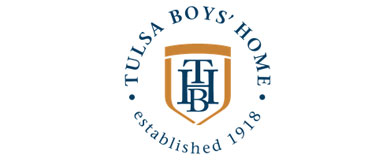
More Information on TulsaBoysHome.org
During all the years of its existence, Tulsa Boys’ Home has helped more than 13,500 young men who were dependent, misbehaving or abused. What exactly is included in the treatment program?
- Individual counseling;
- Coping and life skills groups;
- Self-improvement support gatherings;
- Family advising;
- Relationship classes;
- Dual diagnosis;
- Treatment of mental problems;
- All-inclusive school classes and exercises;
- Sports.
Thanks to these activities, all young men living in the facility conquer horrible encounters, find out about their weak and strong sides, begin building trustful relationships, get fundamental information and adapting abilities. Judging by customer reviews, this is a worthy place.
5. Marsh MediClinic
This clinic is located in Owasso. Being an outpatient unit, it specializes on medication-assisted treatment and deals with opioid addiction. This is a small facility that’s run by Bryan Marsh, a qualified doctor with a certification in Addition Medicine. He has over 10 years of experience and uses evidence-based approaches only. Note that detox services are not available – patients are welcomed after the withdrawal stage.
Address: 12500 East 86th St N #105, Owasso, OK 74055
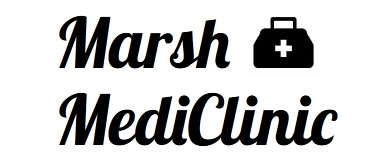
More Information on MarshMediClinic.com
The recovery in Marsh MediClinic consists of two modalities:
- Medication-assisted treatment. The clinic exploits FDA-approved medications for patients’ recovery (naloxone, buprenorphine, Suboxone, Subutex, etc).
- Individual therapy is performed by Dr Marsh and his assistants. It is aimed at treating patients’ co-occurring disorders, teaching them coping skills and the principles of relationship building.
The duration of treatment is not limited. If customers cannot visit the office, they can opt for Telehealth sessions.
Note that this is a commercial organization that does no accept insurance plans. However, customers can pay with cash, cards, or by other methods. The billing and rate information is available on the official website.
6. Resonance Center For Women
This is a center that helps addicted women on an outpatient basis. All services are provided remotely and by appointment. During Covid-10 outbreak, the offices stay closed. Therapists and case workers provide ongoing support to women and their children. It accepts female patients who have drug and alcohol lifestyles, lost their job and have problems with the law.
Address: 1608 S Elwood Ave, Tulsa, OK 74119
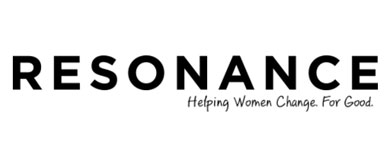
More Information on ResonanceTulsa.org
The outpatient program lasts from 90 days to 3 years depending on the type of addiction and goals chased. During their recovery journey, women work for the community and learn to cope with their cravings.
- What to expect from treatment in the Resonance Center?
- Individual counseling;
- Coping skills classes;
- DUI classes;
- Educational groups and classes;
- Legal help;
- Family counseling.
With the help of this center, women get ready for an independent life and learn to cope with cravings and stress. After solving their legal and housing problems, finding a job and restoring relationships with kids, they are ready for healthy living.
Resonance Center For Women is accredited by CARF and ODMHSAS. This is a non-profit organization, many services are provided for free. Judging by numerous 5-star customer reviews, this place is really worth consideration – it provides all necessary resources.
7. Indian Health Care Resource Center
This center provides quality addiction treatment for native Americans. There is a huge set of services available, including behavior health ones. Adults and adolescence can get help with overcoming addiction by accessing a comprehensive range of services. The team deals with all types of dependence. For using basic treatment modalities (outpatient, inpatient, residential, etc.), customers can get a referral.
Address: 550 S Peoria Ave, Tulsa, OK 74120
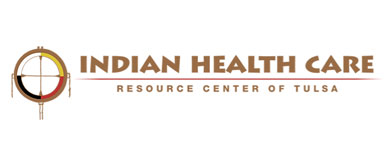
Which services are available in Indian Health Care Resource Center?
- Cognitive and behavioral therapies;
- Coping skills classes;
- Trauma-informed care;
- Family therapy;
- Group and individual counseling;
- Consultations with medical prescribers;
- Medication use guidance;
- Monitoring of treatment and side effects.
Also, there are many programs that might help customers get their life back on track. They can opt for domestic violence intervention, suicide prevention program, summer camp, running classes, internships and other interesting activities.
This center is recommended either for those who need to start treatment and want referrals, or for people seeking community support. Although there are not so many recovery services available, this place might be helpful for relapse prevention and adolescents who are prone to addiction.
8. Tulsa Rightway Medical
The center provides medication-assisted treatment for patients suffering from chemical dependence. It has reasonable rates and uses FDA-approved medications only (Suboxone, Methadone). The process of treatment starts with medical assessment: the staff checks patient’s psychological, physical and mental health. The experience on the first (intake) day varies from one clinic to another, but the duration of recovery always takes at least 90 days. Patients with a history of serious and long-lasting opioid dependence are recommended to get treatment for 1 year or more.
Address: 3445 S Sheridan Rd, Tulsa, OK 74145
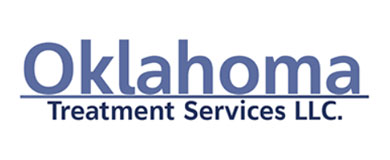
More Information on OkTreatment.com
What’s included in the recovery program?
- Medication-assisted treatment;
- Recovery planning;
- Case management;
- Individual and group counseling.
The company offers a high level of retention in treatment, compliance with laws, financial security, and decent clinical services. It works with patients having HIV or Hepatitis C. All treatment programs are performed in accordance with the guidelines of AATOD (American association for the treatment of opioid dependency), OKATOD (Oklahoma association for the treatment of opioid dependency), and SAMHSA. Tulsa Rightway Medical is also accredited by CARF.
9. Affordable-Recovery Dynamics
Being established in 2005, this rehab provides a comprehensive set of services for addiction treatment. It refers patients to detoxification centers, family services, informational classes, and various clinical services. There are AA and NA groups available, all recovery programs are performed according to the guidelines by SAMHSA.
Address: 1038 N Sheridan Rd, Tulsa, OK 74115
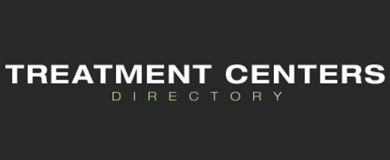
More Information on TreatmentCentersDirectory.com
There is no information about the exact list of services provided in the center. It mostly provides referrals to third-party rehabs. However, customers can count on:
- Educational classes;
- Counseling (group and individual);
- Medical assessment;
- Treatment plan development and checking;
- Access to community resources.
So if you want to initiate recovery, this place could be a nice starting point. It can give you referral to the network of partner clinics and help you find counsellors.
Affordable-Recovery Dynamics accepts a few insurance plans and direct payments. Some services are provided free of charge.
10. Mission Treatment Center of Tulsa
This comprehensive treatment center offers an opioid use disorder program. It mostly offers counselling and medication-assisted treatment. All adults older than 18 are accepted to these programs. All services are provided on the outpatient basis.
Address: 5550 S Garnett Rd #200, Tulsa, OK 74146
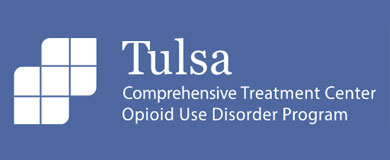
More Information on CTCPrograms.com
The list of services available in MTC of Tulsa includes:
- Individual and group counseling;
- Medication-assisted treatment (Methadone, Suboxone and other drugs);
- Coping skills classes;
- Prescription dosing.
The duration of treatment is not limited – it can last for as long as needed for a customer to reach the desirable goals. Throughout the course of recovery, the treatment plan for each patient is personalized – it allows addressing weak sides and emphasizing strong ones.
This rehab is accredited by CARF and accepts the majority of insurance options (Medicaid and others). The majority of customer reviews are positive – people are content with both services and staff.
11. Center for Therapeutic Interventions
This rehab specializes on outpatient services and helps people deal with all types of issues – psychological, physical, spiritual and social. The staff aims at reducing symptoms and preventing additional functional impairment. All services can accommodate into the client’s schedule, and the treatment plan is changed through the course of recovery to meet personal needs and demand. This rehab deals with both substance abuse and other addictions.
Address: 7477 E 46th Pl, Tulsa, OK 74145
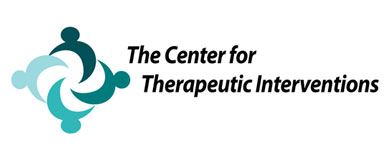
More Information on CTIOklahoma.org
The outpatient substance abuse program incorporates the following modalities:
- Individual and group counseling;
- Coping skills classes;
- Family counseling;
- Gender-specific treatment modalities;
- Bio-psychological evaluation;
- Relapse prevention;
- Evidence-based therapies;
- Referral;
- Help with legal problems.
All services are aimed at restoring the full functionality and letting customers start their lives over. Each program is customized throughout the course of treatment, which guarantees an individual approach.
Center for Therapeutic Interventions accepts some insurance plans (they can be verified upon personal request). Customer feedback is mostly good. People leave positive staff recalls and say that counseling was helpful for them.
12. Keetoowah Cherokee Treatment Services
The rehab performs medication-assisted treatment for people diagnosed with opioid-use disorders. During the recovery course, patients receive methadone and other FDA-approved medications in combination with counseling and behavioral therapies. Thanks to the whole-patient approach, the staff manages to reach the best results.
Address: 2727 E Admiral Pl, Tulsa, OK 74110
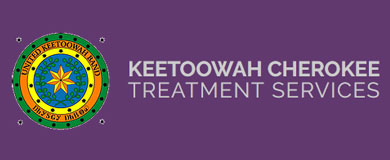
The list of services in Keetoowah Cherokee has all essentials:
- Physical and mental assessment;
- Drug screening and tests;
- Family therapy;
- Individual and group therapy;
- Case management;
- Customized treatment plans.
The staff puts focus on such aspects as recovery progress, building relationships with family and friends, cravings control, stress management, coping skills development, goal setting, and so on. That helps patients overcome all obstacles and difficulties.
Keetowah Cherokee accepts insurance plans (they can be verified online) and keeps services affordable. Customer reviews are exceptionally positive because people say the staff is helpful and caring. This center is provided for those who need short-term outpatient treatment (2 weeks or more).
13. 12 &12
The center works with patients aged 18+ and has an individual approach to everybody. They work with clients referred by relatives, specialists, social help organizations and government offices. A few basic treatment types are accessible: detox, transitional living, inpatient and outpatient, residential recovery, and private co-occurring disease treatment.
Address: 6333 E Skelly Dr, Tulsa, OK 74135
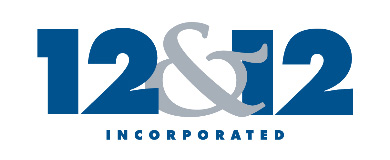
More Information on 12And12.org
The residential program incorporates 37 weekly hours of counseling and education, including:
- Individual and group therapy;
- Anger management;
- Classes that teach adapting and coping abilities;
- Grief recovery classes;
- Self-esteem raising classes;
- Stress management abilities;
- Relationship-building classes;
- Gender-specific issues;
- Relapse prevention.
Patients with mental issues can pick an individualized private treatment plan for getting rid of co-occurring diseases (depression, anxiety, PTSD, borderline disorders and so forth) that keeps going 45-60 days. It assists individuals with conquering mental challenges and dispose of issues that cause addiction.
12&12 is certified by CARF. It’s also supported by the Oklahoma Department of Mental Health and Substance Abuse Services. It might accept some insurance options. There aren’t many customer reviews, so we recommend checking the facilities in advance.
14. Creoks
Creoks is a large health services center that works with adults and children while addressing a huge range of diseases. It deals with substance abuse while providing a comprehensive set of services. The recovery process starts with medical assessment of the patient, his psychological and physical health.
Address: 23 E Ross Ave, Sapulpa, OK 74066
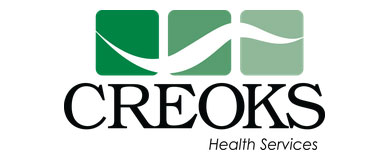
More Information on Creoks.org
Which services are provided in Creoks?
- Screening;
- Assessment;
- Individual and Group Counseling;
- Family Counseling;
- Psychiatric Consultation;
- Medication Management (in-clinic);
- Care Coordination;
- Substance Abuse Services;
- Psychiatric Social Rehabiliatation (PSR);
- Drug Court, Juvenile Drug Court and Mental Health Court.
Creoks is recommended for patients who need the whole spectrum of services and quality treatment. Also, there are school-based services provided, so families are welcomed to get treatment in Creoks. Besides, it has adolescent crisis services.
Creoks is accredited by CARF. It accepts insurance plans and direct payments. Customer reviews are mixed, so it’s recommended to check the facility right from the start.
15. Counseling & Recovery Services of Oklahoma
This is a sanctuary community that allows people to live in a supportive community and work on wellness, behavioral and health issues. They provide services for adults, children and families. There are several treatment modalities available, including counseling, medication management, transitional (sober) living and crisis support.
Address: 7010 S Yale Ave # 215, Tulsa, OK 74136
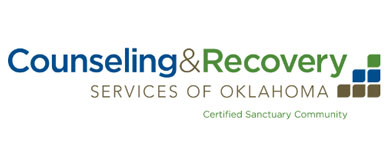
Which services are available in CRSOK?
- Medical assessment;
- Counseling (group, individual, family);
- Medication-assisted treatment;
- Pharmacological services;
- Housing;
- Crisis support;
- The staff helps a lot people with dual diagnosis (depression, bipolar disorder, anxiety, obsessive behavior);
- Anger management classes.
The facilities for transitional living are quite comfortable and provide all amenities and conveniences. Residents stay in semi-private bedrooms and have access to kitchen, bathroom, lounge zones, etc. Thus, Counseling & Recovery Services of Oklahoma is a decent choice for customers with a limited budget.
CRSOK is accredited by CARF. This is a non-profit organization that accepts some major insurance plans and direct payments. Customer feedback is mixed because some customers are not satisfied with the quality of administrative services.
16. Saint Francis Physical Medicine
This clinic offers outpatient and inpatient treatment of various addictions, including drugs, prescription medications, and alcohol. Their medically-supervises level of care is focused on safe, efficient detoxification. Besides, the staff addresses co-morbidity (several health disorders at once) caused by mind-altering substances.
Address: 6655 S Yale Ave, Tulsa, OK 74136
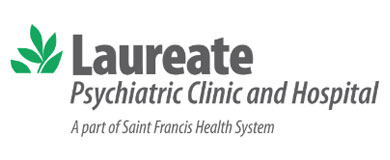
More Information on SaintFrancis.com
What do the programs consist of?
- Group and individual therapy;
- Family therapy;
- 12-step meetings (AA and NA);
- Coping skills classes;
- Relationship building and social classes;
- Case management;
- Dual diagnosis (bipolar disorders, anxiety, depression, etc);
- Personalized treatment plan development;
- Drug screening and tests.
The clinic works with adults and seniors. It also accepts people with ADHD/HIV. Those who have eating disorders are welcomed – there’s a separate program helping people overcome binge eating and anorexia.
Working with a large multidisciplinary team of health professionals, patients manage to get rid of psychological problems that cause addictive behavior. Customer reviews are mixed but concern all services in the hospital. Some additional research might be required if you’re considering long-term treatment in Saint Francis Physical Medicine.
17. Human Skills & Resources
This is a community addiction recovery center that works on an outpatient basis. It accepts all adult patients and helps those who are unable to pay. Patients can start their path to recovery from ambulatory detoxification and then proceed to counselling services.
Address: 2140 S Harvard Ave, Tulsa, OK 74114
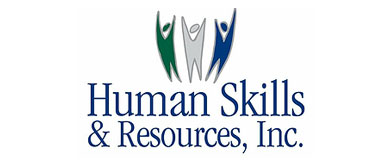
More Information on HumanSkills.org
The list of services in Human Skills & Resources includes:
- ADSAC Assessment & DUI School;
- Screening & Assessment for Substance Use Disorder;
- Outpatient Substance Use Disorder Treatment;
- Intensive Outpatient Substance Use Disorder Treatment;
- Medication Assisted Treatment for Opioid Use Disorder;
- Relapse Prevention Program;
- Anger Management Program;
- Cognitive Skills Program;
- Certified Batterers Intervention Program;
- Court Ordered Supervision;
- Urinalysis Drug Testing.
Combined together, these treatment modalities help patients to overcome not just dependence but its roots, too.
All costs and rates are published on the website. The center accepts direct payments and some insurance plans. It’s accredited by CARF and Oklahoma Department of Mental Health & Substance Abuse Services (ODMHSAS). Customer reviews are scarce but positive.
18. Palmer
This rehab works with adolescents, women and their families. They provide various outpatient programs which a based on a holistic approach. The Palmer’s philosophy is centered around the fact that addiction is a biopsychological disease, so their efforts are aimed at improving overall function and long-term abstinence. The programs’ length is different – it might be from 4 educational sessions to 6 weeks or more.
Address: 5319 S Lewis Ave # 219, Tulsa, OK 74105

More Information on Palmer-Tulsa.org
The groups undergoing outpatient treatment are pretty small: they include no more than 12 people. It helps each customer get enough attention. Family groups can be larger.
What’s included in the programs?
- Group counseling;
- Individual counselling;
- Relapse prevention;
- Recreational activities;
- Anger management classes;
- Problem solving abilities;
- Grief and loss classes;
- Trauma therapy;
- Mental health therapy;
- Self-esteem building;
- Parenting classes;
- Family therapy.
While through the recovery process, patients learn to enhance their social skills, cope with cravings and stress, detect and overcome the reasons of addiction, and get community support. Customer feedback is absolutely positive.
19. Women in Recovery
This rehab focuses on women and children’s services while offering educational services and support groups. They specialize in outpatient treatment and Telehealth. The organization provides a wide gamut of services for people with addiction and behavioral health problems. Women In Recovery center deals with alcoholism, drug addiction and co-occurring disorders.
Address: 1055 S Houston Ave, Tulsa, OK 74127
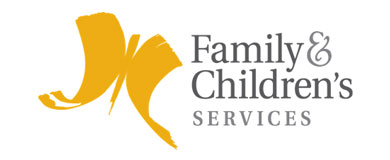
The list of treatment modalities includes:
- Medication-assisted treatment;
- Assessment;
- Case management;
- Educational classes;
- Relapse prevention;
- Court related services;
- Crisis intervention;
- Aftercare support;
- Individual and group counseling;
- Family services.
The staff also helps women in children who become victims of domestic violence or have temporary difficulties. Those who’re experiencing crisis are recommended to get help in this rehab. There are many useful classes which might help people with different forms of addictive behavior.
Women In Recovery is accredited by various organizations. It is supported by volunteers and donations, so people with a tight budget can count on some adequate help. There are many praising reviews, so this place is worth consideration.
20. Restoring Lives
Being established in 2006, Restoring Lives is a men’s sober living facility that helps addicted clients restore their lives and overcome co-occurring disorders. They accept people aged 21+ with alcohol or drug addiction, and those who have found themselves in a homeless situation. The safe and structured living environment helps people reach their full potential.
Address: 3314 W 61st St, Tulsa, OK 74132
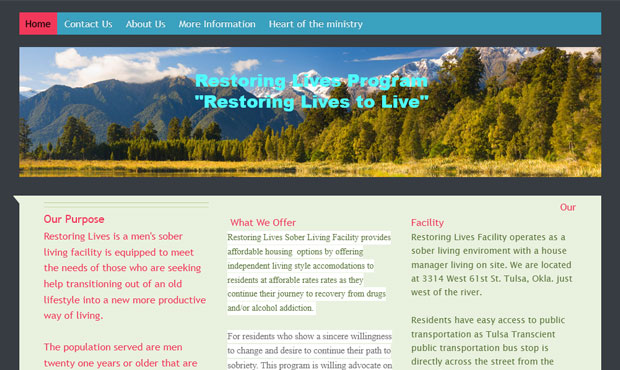
More Information on RestoringLivesTulsa.org
The rehab accepts people after. Detox and withdrawal programs. They are not allowed to bring narcotic medications, and the center has a zero tolerance for drugs and alcohol.
The residential program includes:
- Group counseling;
- Evidence-based therapies;
- Random drug screening;
- Recreational activities;
- Psychological help.
During the residential recovery program, customers are expected to pass random drug screening abide by curfew hours and prepare their own food in the commercial kitchen. There are all essential amenities available, but don’t expect anything extra – this program comes at a low cost, so it offers a limited amount of resources. Residents have access to public transportation and can attend job (they are expected to get employed anyway).
Thus, it’s a nice option for people with a tight budget and willingness to combine treatment and employment.
Possible Signs of Addiction
How do people begin suspecting addiction of their friends or relatives? There are numerous indications of dependence, including:
- Serious weight reduction. The more drugs are used, the higher the level of weariness.
- Change in pupil size. In opium addicts, the pupils are exceptionally small – they have point size and don’t enlarge in obscurity. In cocaine and amphetamine addicts, pupils are enlarged and don’t react to light. Similar signs may show withdrawal from heroin and different medications of the narcotic nature.
- Runny nose is the indication of opium withdrawal. For this situation, the patient may have irritated skin in the nose in light of which he will regularly rub his face.
- Hand tremor. Hand shaking is a typical sign of medication withdrawal. An individual can’t perform any minor work, he tries to hide his hands.
- Grayish skin complexion. Cocaine addicts have a rosy skin tone. In other cases, skin gets pale, somewhat blue, or too yellowish. At later phases of addiction, the skin gets heavy, covered with age spots and wrinkles or turns out to be grayish.
- Infusion marks are an indication of drug addicts who take psychoactive substances intravenously. Infusion marks are noticeable at veins, have obscuring and nodular seals. To conceal dependence, addicts infuse drugs into the vein on the legs, crotch and neck.
- Teeth problems. Indications of chronic drug use additionally incorporate unhealthy teeth color, rotting and loss of teeth, a large number of ulcers on gums and in oral cavity.
Simultaneously, addicts exhibit social indications of compulsion. These progressions rely upon the substance in the event that. Commonly, substance abuse and addiction are manifested in the following:
- Regular mood swings (from despair and anger to the sensation of overpowering satisfaction and love).
- Sleepiness, tiredness, apathy.
- Good mood, smiling and laughter for no reason.
- Hygiene neglecting, filthy hair and garments.
- Wearing long-armed clothes even in the hot season.
- Aggression and irritability as the reaction to questions and requests from close friends and relatives.
- Loss of hobbies, life goals, priorities. A person seems to be ignorant about the life around and starts having problems with family, work, health, self-development, etc.
Moreover, you should become concerned when you begin missing valuable things stored at home, see blood smudges found on garments or in the bathroom, or hear consistent requests for money. Hear weird calls after which an individual ventures out from home without clarifying anything? Your loved one has new friends but doesn’t want to introduce them? You face debts, unpaid invoices and bills? All that ought to be suspicious, as well.
How Rehab Centers Can Help
Rehab centers are one-stop-station for any person who wants to get rid of addictive behavior and various dependencies, be those drugs, alcohol, prescription medications, and so on. By offering professional help, they address people’s issues via the holistic approach. Specialists deal with psychological, physical, spiritual and social problems, which allows to eliminate the root of addiction.
Main Treatment Approaches
Essentially, addiction treatment is divided into inpatient and outpatient. The first category includes detoxification – the withdrawal from addictive substances. It lasts for a few days (3-7) and includes a medication-assisted treatment and nurse assessment. Besides, residential treatment is also considered to be an inpatient modality. It may last for as long as required (from two weeks to three years) and usually takes place in sober houses or community campuses.
Outpatient treatment is all about counseling. By visiting individual and group therapy, AA and NA meetings, psychological sessions and special events, a person deals with co-occurring disorders and psychological problems. Outpatient treatment is very important because it’s not enough just to stop using drugs – every addict should discover the reasons for addictive behavior and deal with them. In some people, dependence is caused by psychological trauma, in others – the influence of addicted friends. Third ones have mental disorders.
Common Services Provided by Rehab Centers
The scope of services provided by recovery centers relies upon its sort and specialization. The following modalities and services are widely available:
- Individual and group therapy. Customers work with addiction experts and therapists to find their own reasons behind the habit. Such meetings assist them with learning the dangers of dependence and discover approaches to adapt to longings and the troubles of recuperation.
- Dual diagnosis. In many cases, addiction is brought about by co-occurring mental illnesses: depression, anxiety, schizophrenia, bipolar disorder, and so on. Experts analyze those diseases and assist individuals with defeating them. Therefore, cravings subside, and people learn to cope with their emotions and thoughts in a sober and productive way.
- Family counseling. Addict’s relatives regularly end up being mutually dependent. Very often, family members don’t have a clue how to help their loved one. Analysts counsel them and guide on reinforcing family bonds, reestablishing connections and managing addiction all together.
- Cognitive behavioral therapy. This is an objective mental methodology that is focused on critical thinking. It makes individuals change their mentality, shift to specific focuses and, subsequently, change their conduct. Analysts center around the intellectual and psychological bonds and help patients manage dependence issues.
- Dialectical behavioral therapy. This is a proof based treatment that is pointed toward treating marginal behavioral conditions, particularly, bipolar disorder.
- Expressive therapy. To get internal peace, it’s imperative to communicate feelings in a sober and productive way – that assists individuals with feeling much better and dispose of pressure. When going through expressive treatment (music, painting, sculpting, writing, dancing), addicts not just discover new methods of unveiling feelings – they find hobbies and interests. The effect on the personal satisfaction is hard to overestimate.
- Psychological social treatment. This methodology depends on discovering personal conduct standards and evolving them. Rather than doing one and the same thing again, patients figure out alternative ways of dealing with addiction and negative emotions.
- Animal therapy. Equine therapy is the most widespread alternative here, yet some residential rehabs run ranches, so inhabitants care about animals, learn responsibility and appreciate the positive influence of giving instead of taking. This methodology has proved to be productive for individuals with affected mental states.
- Recreational activities. While living in rehabs, people not only undergo treatment – they enjoy free time and have fun with the community. Pretty regularly, recovery centers coordinate festivals, trips, events, and outdoor activities. That likewise helps addicts understand how happy sober life can be. Besides, it helps to strengthen the community bonds.
- Anger management classes. Specialists instruct individuals to communicate their anger and negative feelings in a safe way without harming anybody.
- Life skills classes. This is an essential service because many addicts find it challenging to reintegrate back into society and don’t know the basics of living. During such classes, they learn to build relationships, care about themselves, cook, clean, and solve vocational problems.
- Nourishing education. Patients learn the essentials of healthy eating and learn to cook food in a healthy way.
Factors to Consider When Choosing a Rehab Center
There are numerous aspects that should be taken into account when one chooses a recovery center. Ask yourself the following questions when in search of a worthy rehab:
- Which services are included? Any self-respecting recovery center should offer the entire range of treatment choices, including group and individual counseling, as well as psychological treatment.
- Are experts qualified? Study the staff members and ensure that the patient will be treated by genuine experts. You can likewise check out customer feedback – it can help you make an informed decision.
- What’s the span of treatment? In order to reach full recovery, customers should spend some time in a rehab: as a rule, 6-12 months are enough. This time is sufficient for an individual to change personal conduct standards and develop abilities for adapting to cravings and stress.
- What is the staff-to-patient proportion? The lower it is, the more consideration is paid to every client.
- Are the facilities neat enough? There’s a ton to focus on: kitchen, bedrooms (private, semi-private or dorm-like), recreational facilities, meeting room, etc. TV, Internet and sports facilities might also be of a particular significance. Ensure the sober house is comfortable enough for your loved one.
- What is the location? The individuals who need to combine treatment with work or education, or visits to the court ought to select something in city rural areas. On the opposite, if the addict needs tranquility and should stay away from triggers, they can choose a far-away rehab that’s located outside the city.
- Which payment options are accessible? Ideally, different types of direct payments (credit cards, cash, checks) should be supported. Besides, many worthy rehabs provide a flexible payment policy which means patients can pay whenever it’s convenient for them.
- Are insurance plans supported? Which ones? Protection inclusion is probably the most sultry issue with regards to installment for recovery. A few patients wind up leaving negative audits on the grounds that their protection didn’t cover treatment. To stay away from it, try to confirm your arrangement ahead of time and check the data on the authority site.
- Is it religious? Are programs faith-based? For certain individuals, Christian-based recovery and Bible studying become a genuine way out – it assists them with discovering support and inward harmony. Atheists, on the opposite, don’t want to use any religious methodology since they will feel awkward in such conditions. Anyway, many faith-based rehabs provide treatment services for free in exchange for community contributions (cleaning, house obligations, repair works, and so on). So it can be a nice choice for addicts who don’t have any budget but need strong support and want to stay involved in a community.
- What is permitted to bring? Some items (cell phone, meds, books) might be disallowed. The rundown of ‘To Bring’ and ‘Not To Bring’ is usually posted on the official site. Investigate it before treatment.
- Is communication with loved ones permitted? In certain centers, seeing friends or family is prohibited (throughout the course of treatment or during its initial months).
- What the rehab rating is and what do patients say about it? The last yet not the least is checking of the rehab’s rating. By reading client surveys, you can get a ton of helpful data about the facility and its staff.